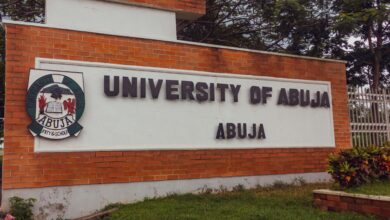Ogun State Faces Legal Clash with Ifa Council Over Awujale’s Islamic Burial
The Ogun State Government is bracing for a legal showdown with the International Council for Ifa Religion (ICIR) over the burial of the late Awujale of Ijebuland, Oba Sikiru Kayode Adetona, conducted according to Islamic rites. The controversy, which has sparked widespread debate, centers on the exclusion of traditional Yoruba burial rites, prompting the ICIR to threaten legal action against the state and the monarch’s family.
Oba Adetona, who passed away on Sunday, July 13, 2025, at the age of 91, was laid to rest the following day, July 14, 2025, at his private residence in Ijebu-Ode, as reported .
The burial, led by the Chief Imam of Ijebuland, Sheikh Muftaudeen Ayanbadejo, adhered to Islamic traditions, fulfilling the late monarch’s documented wishes and the Ogun State Obas and Chiefs Law of 2021, which allows traditional rulers to be buried according to their religious beliefs.
However, the ICIR, led by President Dr. Fayemi Fakayode and legal representative Ifasola Opeodu, condemned the process as a violation of Part 8, Section 55, Sub-section II of the Ogun State Chieftaincy Law, which they claim mandates traditional rites for royal burials.
At a press briefing in Ibadan, Oyo State, Fakayode criticized the sidelining of the Osugbo Confraternity, the traditional custodians of final burial rites, praising their restraint despite being barred by security forces. “This is not just about the burial of one king; it is a challenge to the core of Yoruba heritage. Ignoring our customs is a direct affront to the cultural identity that defines our people,” Fakayode said. Opeodu called the burial a “threat to democracy and an assault on the religious freedom of traditional religion practitioners,” adding, “The refusal to follow the traditional burial laws amounts to an assault on the religious freedoms of indigenous faith adherents”.
The Ogun State Government, through Attorney General and Commissioner for Justice, Mr. Sina Ogungbade (SAN), dismissed the ICIR’s claims as baseless, asserting that the burial aligned with the late Awujale’s wishes and legal provisions. “If they want to sue, I will describe it as a welcome development,” Ogungbade said, encouraging legal challenges but offering “free legal advice” that the ICIR’s position is “steeped in ignorance of what the law is on the matter.”
He added, “How can the choice of the deceased Awujale or that of his family to bury him according to his faith and without disruption by anybody, as guaranteed by law, be stretched to amount to an assault on religious freedom of indigenous adherents? Their position, to put it mildly, is laughable”. Ogungbade emphasized that the state is prepared to defend its actions in court, stating, “If and when they sue, we will meet them in court”.
The Olowa Iberu and Chief Priest of Ijebu land, Chief Rasaki Osimodi, expressed deep disappointment, noting, “It is really painful because there was someone (the late Awujale) who ate and drank with us, but when it was time for him to pay us back, he said he must be buried according to Islamic injunction”. Osimodi claimed the government’s backing, including a signed agreement with the Awujale, prevented the Osugbo Confraternity from taking possession of the body, which traditionally belongs to them. “The late king’s children claim he did not associate with us, the traditionalists. But we know that Kabiyesi did partake in our rites – and he left obligations unpaid.
Now they’ve brought in a heavy presence of police and soldiers. Who wants to die? So, everyone has stepped back and allowed them to do as they please,” he said.
A top palace chief, speaking anonymously, defended the family’s decision, stating, “The Awujale family has been guided by the provision of the law, and if anyone is angry over that, the person should confront the government that enacted the law and not the family. In any case, the noise is needless; it is what we call much ado about nothing”. The burial, attended by dignitaries like Governor Dapo Abiodun, former Vice President Yemi Osinbajo, and Aliko Dangote, highlighted the late monarch’s stature but intensified tensions when traditionalists were turned away by security forces.
The controversy has ignited a broader debate about balancing religious freedom and Yoruba cultural heritage. The ICIR, supported by traditionalists like Oba Dr. Ifarotimi Adifagbola Balogun, the Oba Isese of Ogun State, argues that the exclusion of traditional rites undermines the sacred institution of Obaship. “This is not just about Awujale; this is about protecting the sacred rites that validate the authority of Yoruba monarchs,” said High Chief Ifasola Opeolu, the Oluwo of Iperu.
The Isese Worshippers of Ogun State have formed a committee to engage the government and review burial laws to prevent future cultural erosion.
Meanwhile, posts on X reflect mixed sentiments. One user noted, “Ogun State house of assembly passed a bill that traditional rulers in Ogun State can choose how they are buried and Governor Dapo Abiodun signed it into law.
Awujale was buried according to Islamic rites as he must have notified his people”. However, others expressed outrage, with one stating, “Chaotic Moment traditionalists were disgraced and denied access at Awujale’s burial rites In Ijebu.
They said it’s a Muslim burial. Omo!😭”, highlighting the emotional weight of the dispute.
What’s Happening Next?
As the ICIR prepares to take the matter to court, the legal battle could set a precedent for how traditional and religious practices coexist in Nigeria. Will the courts uphold the Awujale’s right to an Islamic burial, or will traditional rites take precedence? Share your thoughts in the comments .
Meta Title:
Meta Description:



